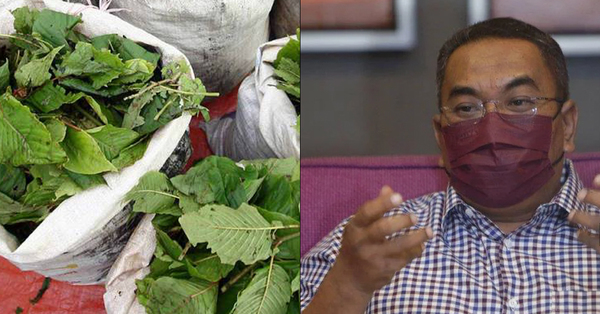Astro Awani
& Mohamad Shahril Badri Saali/New Straits Times
Subscribe to our Telegram channel for our latest stories and breaking news.
He has proposed that the federal government should allow the export of ketum leaves as it would help both ketum growers as well as the government in the form of tax revenue through the export of the leaves.
Sanusi, a member of Malaysia’s Islamist political party PAS, said that ketum leaves, particularly those grown in Kedah, are in high demand in neighbouring Thailand where it is widely used for medical purposes.
He stated that ketum export could be developed into a lucrative industry.
“There is high demand in Thailand for ketum from Kedah, which can fetch as high as RM150 per kg as compared to just RM30 per kg in the local market here. Thailand has the technology to extract ketum into various health products and ketum planted in Kedah is of high grade as compared to the ketum planted in the neighbouring country,” he told a press conference yesterday, 16 March, reported New Straits Times.
“So, by legalising its export, ketum can be developed into a lucrative industry in Kedah.”
According to the PAS lawmaker, the Malaysian government spends a lot of resources in combatting the illegal export of ketum to Thailand as the plant is listed under the Poisons Act 1952.
Under the act, planting the trees is not illegal, but plucking the leaves and processing them is.
Last month, an attempt to smuggle 1.2 tonnes of ketum leaves out of Malaysia was foiled, according to Kuala Kedah Malaysian Maritime Enforcement Agency (MMEA) director Commander Noor Azreyanti Ishak.
There were 120 black bags containing ketum leaves worth an estimated RM216,000.
“I wish to make it very clear that I am not high on ketum when I am saying this. I have been informed that our law enforcement agencies have been working hard to combat the illegal export of ketum and I have high respect for them. We are spending a lot of resources to combat ketum smuggling but I am asking: what if we legalise the activity and the government benefits from it by imposing export duty?
“So I hope this is given due attention, as it’s our loss. We have a lot of crops on our land but it’s considered illegal. It’s better if we legalise it (for export),” Sanusi was quoted as saying.
He said Kedah is prepared to become a legal hub for ketum, adding that the state government can appoint any of its subsidiaries to act as an agent to collect all the ketum crops and act as the sole legal exporter.
“The government can collect duty from the trade.”
“Ketum is planted extensively in Kedah, so it is better if we allow its export. We have ketum trees, we can plant them, but we can’t process them although ketum has medical value,” he said.
He stressed that he doesn’t condone the abuse of ketum by mixing it with banned substances.



